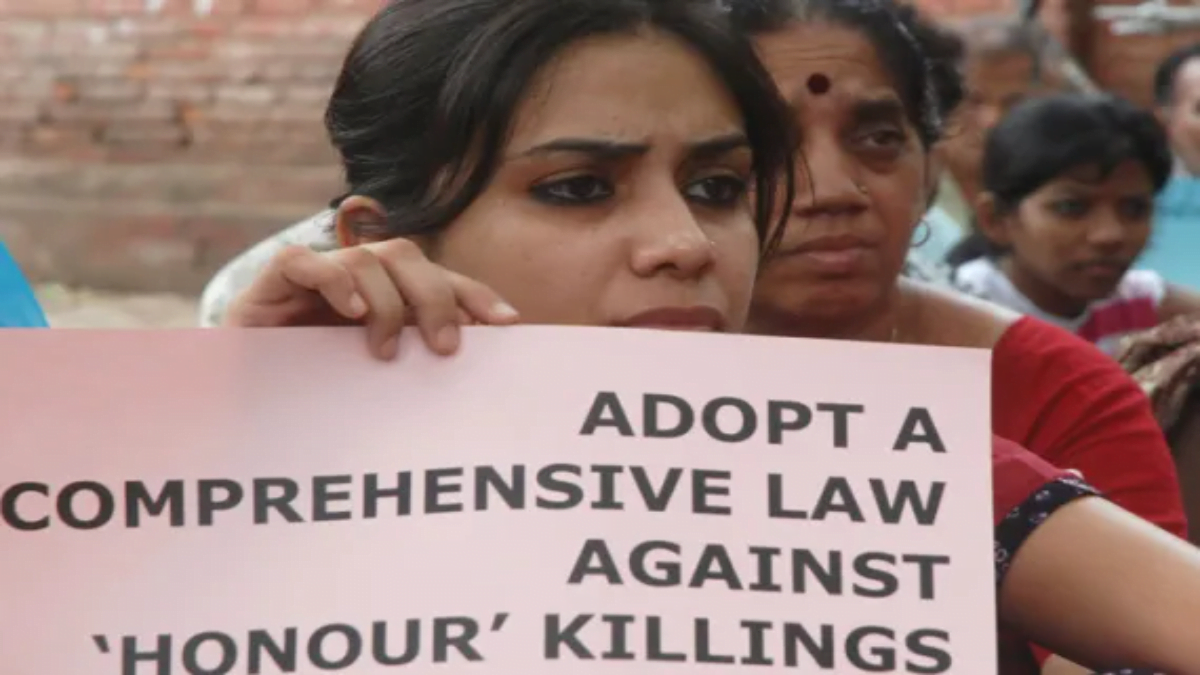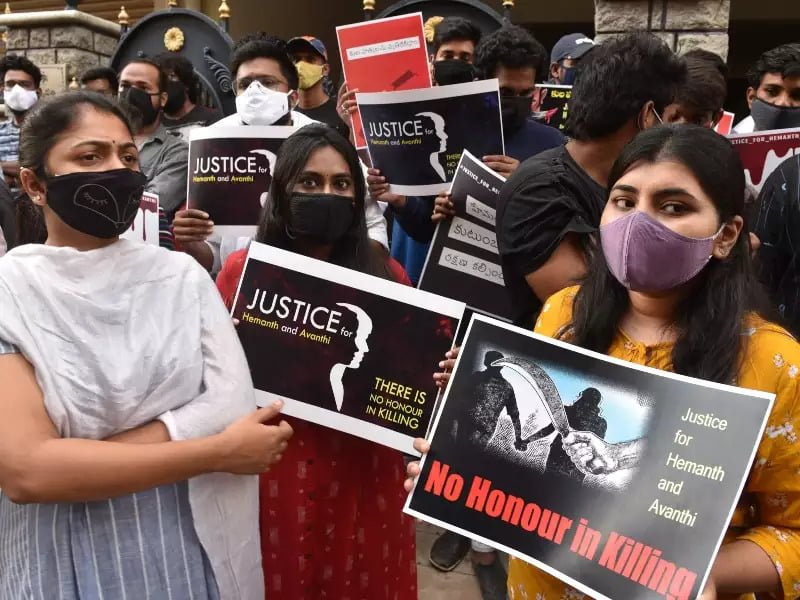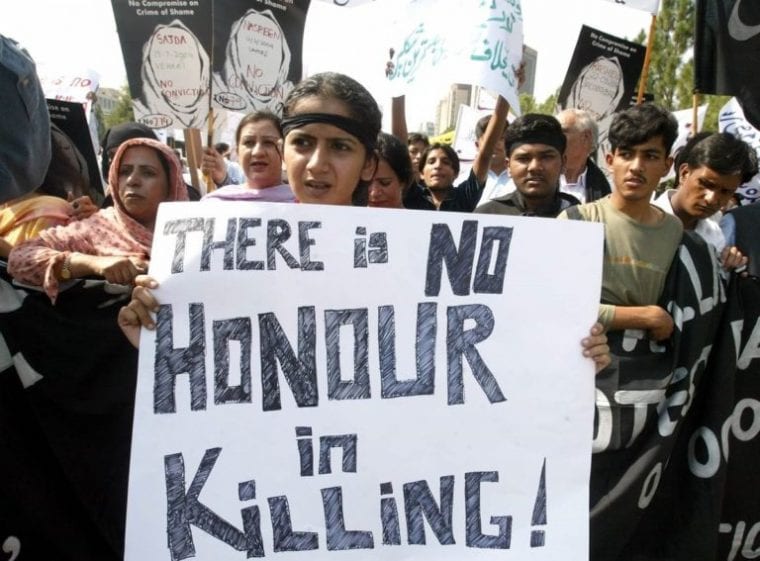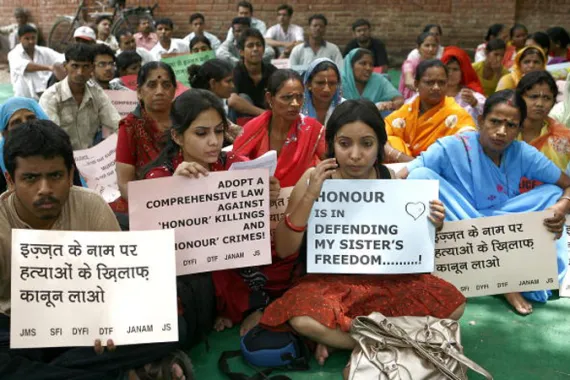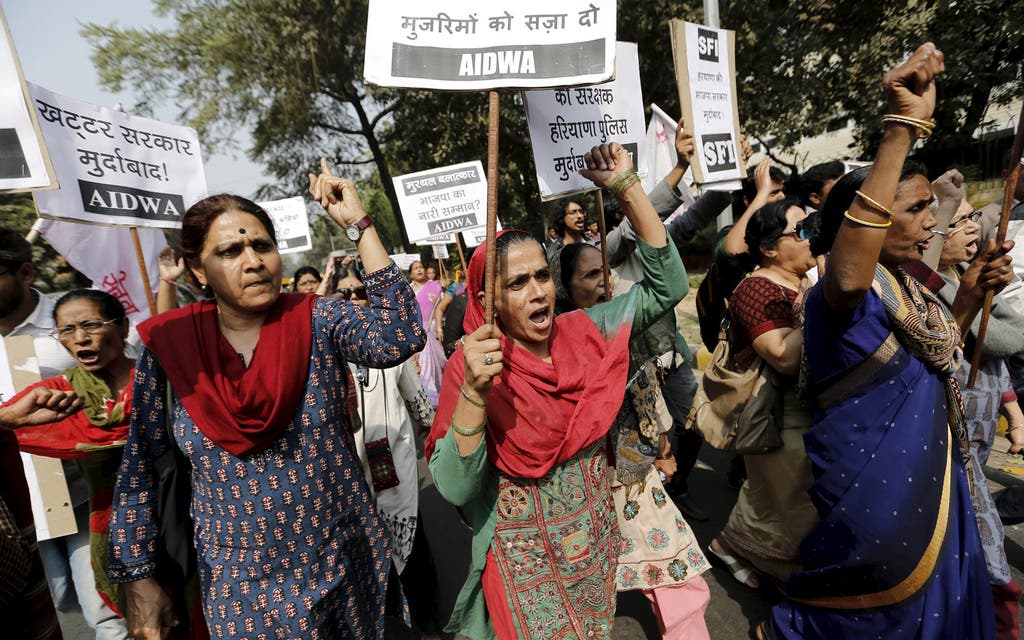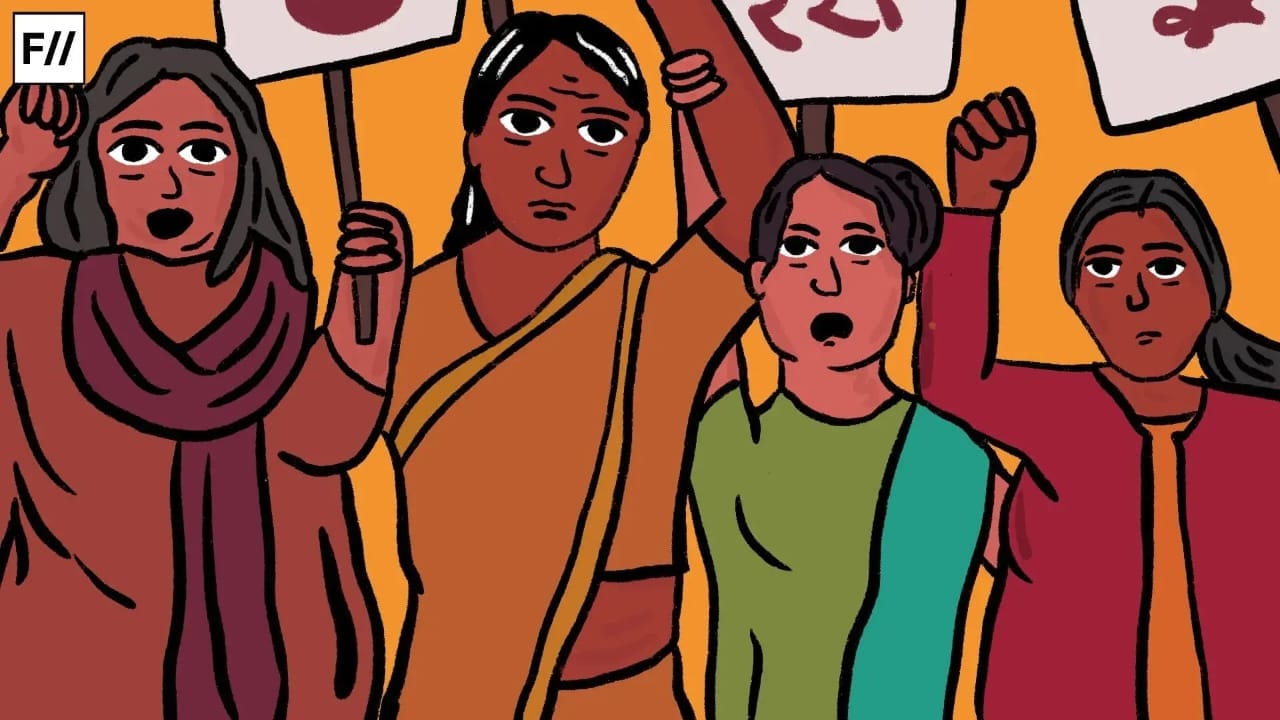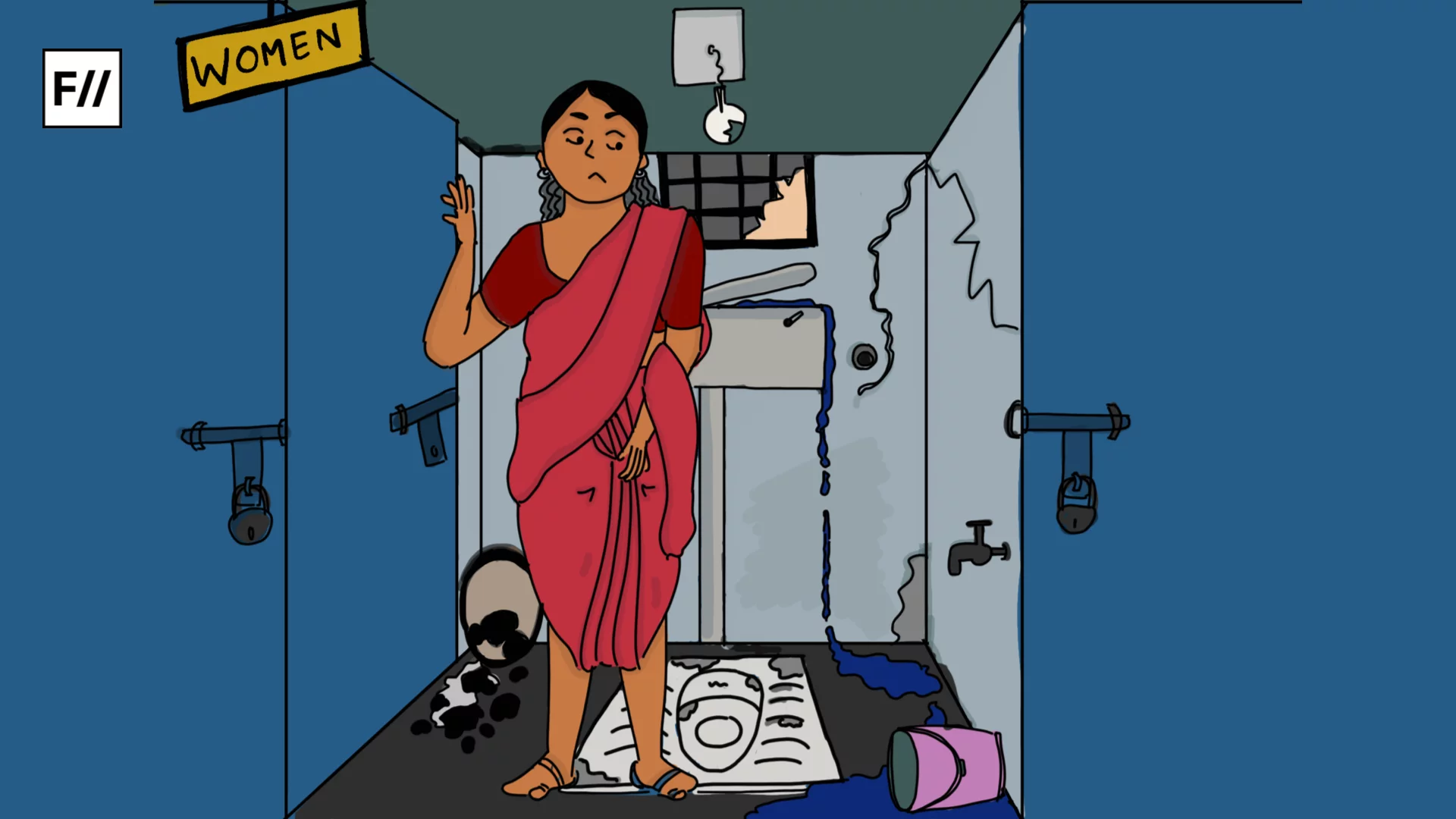Trigger Warning: Mentions of violence
A quick search on the internet for “honour killing” would find multiple reports of horrendous murders coming from different states of India practically every day. The recent reports of an honour killing in Kerala of a minor girl by her own father, have brought attention to the brutality committed by socially conservative individuals yet again. According to the reports, following a heated argument over her liking towards a boy from a different religion, the girl was forced to drink pesticide by her father. After battling life for more than a week, the girl succumbed to death in the hospital.
According to the reports, following a heated argument over her liking towards a boy from a different religion, the girl was forced to drink pesticide by her father.
The claims state that the father physically attacked his daughter with an iron rod last month, assaulting her till he forced pesticide into her mouth. She attempted to spit out the poison, but before long, she began to vomit and lost consciousness. She was subsequently taken by her mother and other family members to the hospital, where the physicians determined that the pesticide had damaged the girl’s internal organs which had led to her demise. As per the reports this is the fifth honour killing tragedy Kerala has witnessed in the last six years.
Unfortunately, this is not an uncommon incident of crime in our nation. Last month, a 17-year-old girl in the city of Bengaluru was allegedly killed by her father who claimed that his reputation was being tainted in their village because of her romantic relationship, the reports stated.
In 2023 only, India witnessed many numbers of crimes involving close family members as the murderers. In February, the media reported a painful news of a father in Andhra Pradesh’s Alamuru village who murdered his daughter, decapitated her, and disposed of her body parts over a furious fight regarding her relationship with someone of different caste. Although the incident occurred on February 10, it was not until the victim’s grandfather filed a missing person’s report that it was discovered. In May, a man in Uttar Pradesh, took his niece out of her home and killed her because the niece had eloped and married a boy from a different caste. The list of shame goes on till the heart gives out.
All these heinous crimes in the name of honour proves how social conservatives in India’s rural and urban areas are committing barbaric acts bypassing the laws.
Women: the biggest victims of honour killing
According to the recent statistics available from the National Crime Records Bureau (NCRB), in India, there were 25 honour killings reported in each of the years 2019 and 2020 and 33 in 2021. However, the numbers may be far higher than stated because they are based on reported data. The number of unreported data or falsely reported number of crimes can potentially render this data inaccurate.
Even with the scarce data of the true number of honour murders that occur each year, when you look at the brutal honour crimes in India in the last one year, all the victims are women. These recent dreadful incidents are only a scrape on the surface. Analysing these crimes, in addition to reflecting the severe religion and caste-based differences that still exist in Indian culture, it is important to note that the high rate of honour murders is also a sign of ingrained patriarchal institutions that still restrict women’s autonomy and ability to make their own decisions.
India’s caste system, which maintains caste borders solely via monitoring and regulating women to ensure they marry according to caste norms, along with the reinforced belief that parents have the right to decide who their daughter marries, enjoy particularly broad acceptance here. When this hierarchy is under danger in any degree from a woman’s autonomy, the women face violence in the name of “protecting the culture and dignity of the community or family.” Also, when a man from the marginalised castes, the Dalit community, marry women from more affluent castes, they also face some of the harshest forms of violence.
Why isn’t there a legislative solution in place yet?
Every year, as the nation settles from the shivers of past alarming incidents of honour killing crimes, another one gets placed on the headlines. Also, many of such horrifying incidents appear to be vastly underreported for a variety of reasons. The caste and community power over the issue, the political dynamics, and even family members covering it enough to “protect”, the criminal, the reasons can be disturbing from one to another.
Due to the lack of national legislations addressing honour killings in India, crimes involving honour fall within the general legal penalties specified in the Indian Penal Code, 1860 (“IPC”)
Due to the lack of national legislations addressing honour killings in India, crimes involving honour fall within the general legal penalties specified in the Indian Penal Code, 1860 (“IPC”). Sections 107-11 (abetment of murder), 120A and 120B (criminal conspiracy), 299-304 (murder and culpable homicide), and 307-308 (attempt to kill and culpable homicide) are among these clauses. In addition to the IPC, incidents of honour murders may be prosecuted under the Scheduled Castes and Scheduled Tribes (Prevention of Atrocities) Act, 1989, which addresses atrocities perpetrated against individuals from Dalit and tribal communities.
In the past, several Bills have been proposed in order to reduce honour crimes in the country. A draft Bill was submitted in the Law Commission Report which was later passed by the Rajasthan Legislative Assembly in 2019. This proposal has also been proposed as a Private Member’s Bill and by the National Commission for Women. These Bills which were passed preventing mob lynching in at least three states run by BJP opponents and one ruled by the party itself in the last four years have not been enforced, with the Union government claiming that lynching is not classified as a crime under the Indian Penal Code (IPC), a report from Hindu stated.
The need for effective laws to encourage increased police accountability, shield vulnerable couples especially girls and women who are house arrested and neglected their basic rights, and put pressure on authorities to take prompt, decisive action is utmost at this moment.
The Centre for Law & Policy Research has mentioned how groups attempting to combat these crimes have long claimed that only a targeted legislation with effective law enforcement can put a stop to them.
The Centre for Law & Policy Research has mentioned how groups attempting to combat these crimes have long claimed that only a targeted legislation with effective law enforcement can put a stop to them. Also, there are several reasons to enact a specific legislation that addresses both the preventative and punishing parts of honour crimes. Many will continue to treat them as a matter of sustaining caste endogamy until that occurs.
It is disappointing that in India, a democratic country, the free will to choose one’s partner is forcefully suppressed or taken away by the family members. In case of violence against minors who are still depending on their parents for basic needs, the inhumane assaults that they face instead of the love and comfort they deserve is unimaginable. These unending murders in the name of “honour” needs to stop for all the children to understand their right to live fearlessly in a society that preaches the value of humanity.
